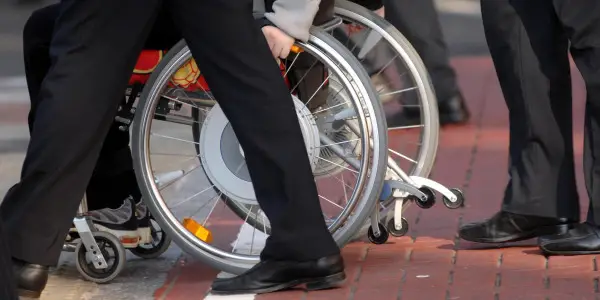The ideals of the 1916 Rising should be revived to give people with disabilities a key role in scrutinising how the government ensures their protection, respect and human rights, campaigners have said.
A high-level United Nations report called for people directly affected by state services and supports to be given the job of a watchdog.
But eight years after Ireland signed up to the expansion of equal rights under the Convention on the Rights of Persons with Disabilities it is still to be ratified.
Emily Logan, head of the Irish Human Rights and Equality Commission which commissioned a report on how the Government is progressing the UN rules, said political will is needed to pass laws which reflect the need to cherish all citizens equally.
“There is now an opportunity for cooperation across the Houses of the Oireachtas to enact legislation that would reflect the values of rights and equality publicly invoked in this year of State commemorations,” she said.
It is estimated that 600,000 people in Ireland live with disabilities.
Ms Logan said: “The convention places the full and direct participation of people with disabilities at the centre of the monitoring process.
“It represents a step change away from the paternalistic, charitable and medical models to an emancipatory approach based on independence, dignity and self-advocacy.
“The convention recognises people with disabilities as active participants in their own decisions, and equal partners in State action on disability.”
The UN special rapporteur on the rights of persons with disabilities, Catalina Devandas Aguilar, launched the report in Dublin Castle.
It found no single umbrella organisation for people with disabilities exists to represent the full diversity of all those affected by services, supports and reforms of care.
It recommended that Ireland adopt a similar approach to Malta which has appointed people with disabilities to be watchdogs.
Ireland is one of one of three EU countries not to ratify the UN convention and at least five new laws have been planned but have not come into operation, subsequently delaying progress.
The last government gave commitments to have the legislation enacted and commenced by the end of this year.
